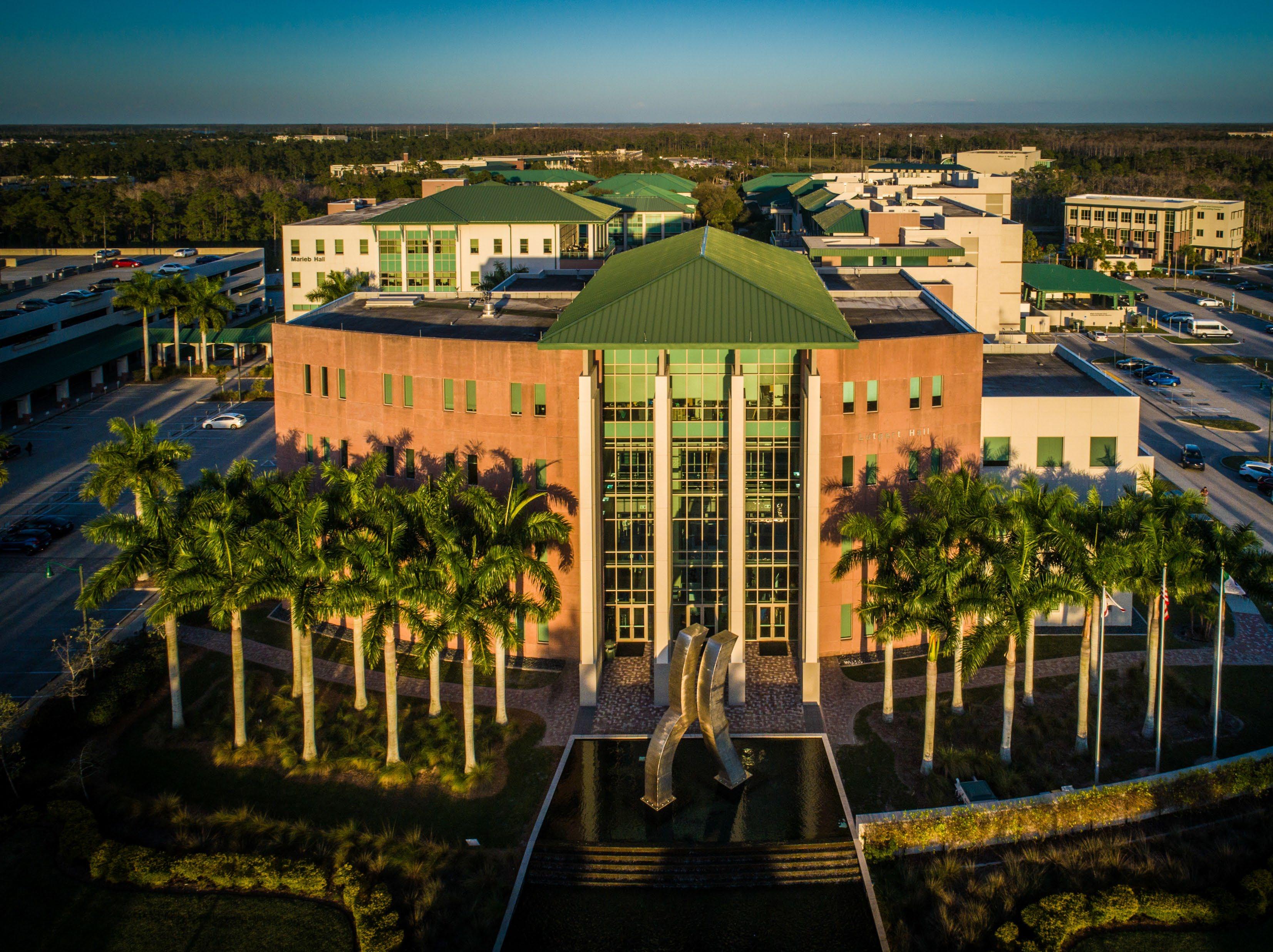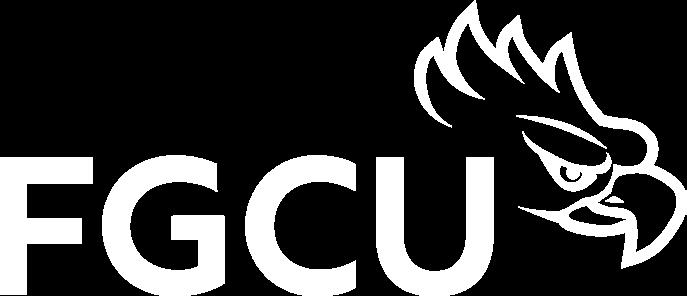FOCUS 2017 - 2022 Strategic Plan
December 2022



December 2022


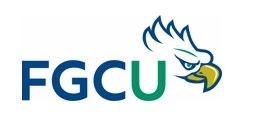
1. FOCUS on improving our retention and 4-year graduation rate
2. FOCUS on implementing a comprehensive and coordinated enrollment management initiative that exposes students to worldclass researchers, outstanding faculty and talented staff, while providing a seamless experience for students from recruitment through graduation, leading to employment and further education opportunities

3. FOCUS on delivering an affordable, high-quality education and eliminate (or minimize) the need for student debt
4. FOCUS on providing intentional opportunities for student engagement with faculty and staff to build a sense of community and an atmosphere designed to achieve success

4-YEAR GRADUATION RATE (ALMOST DOUBLED)
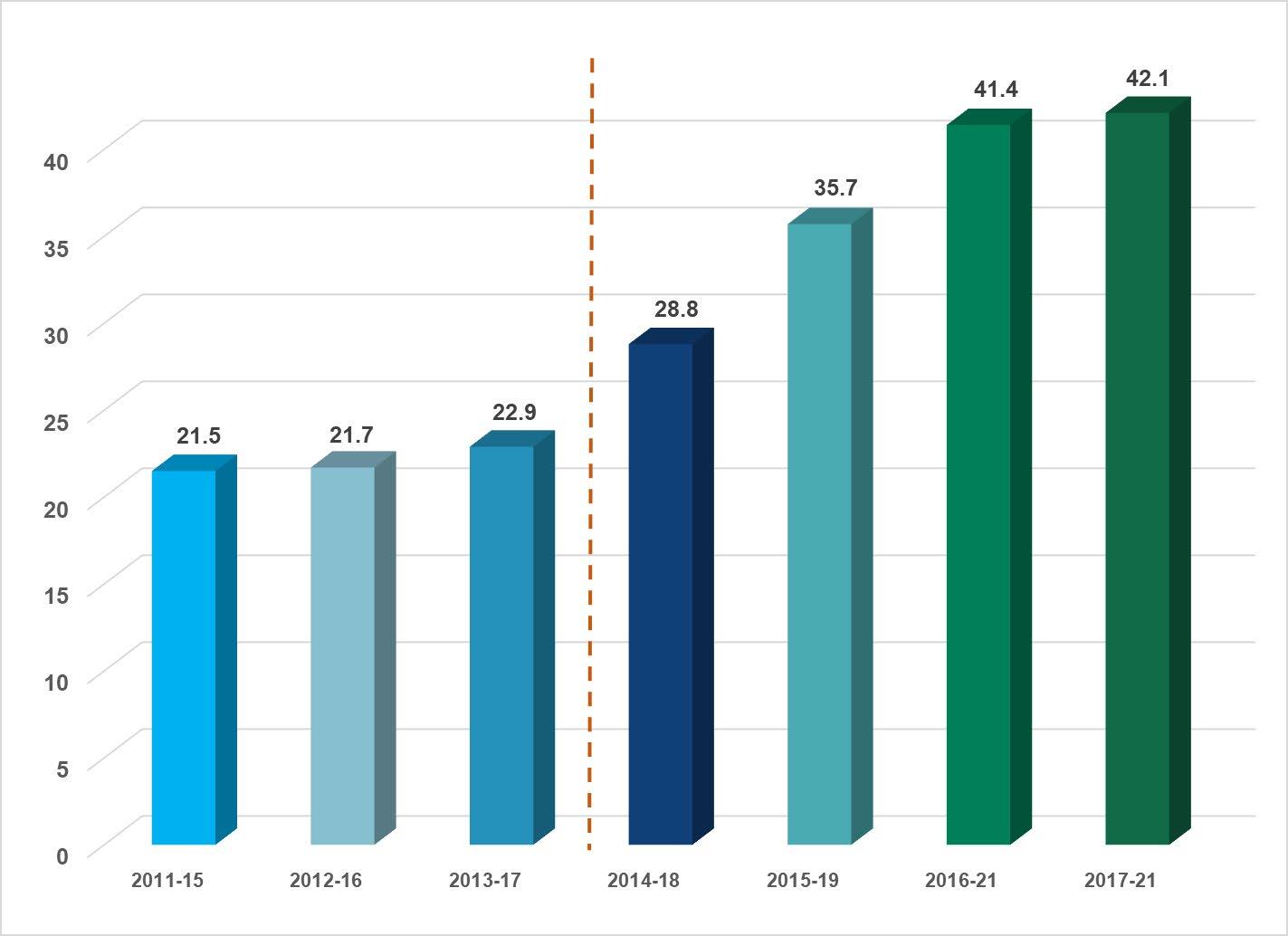
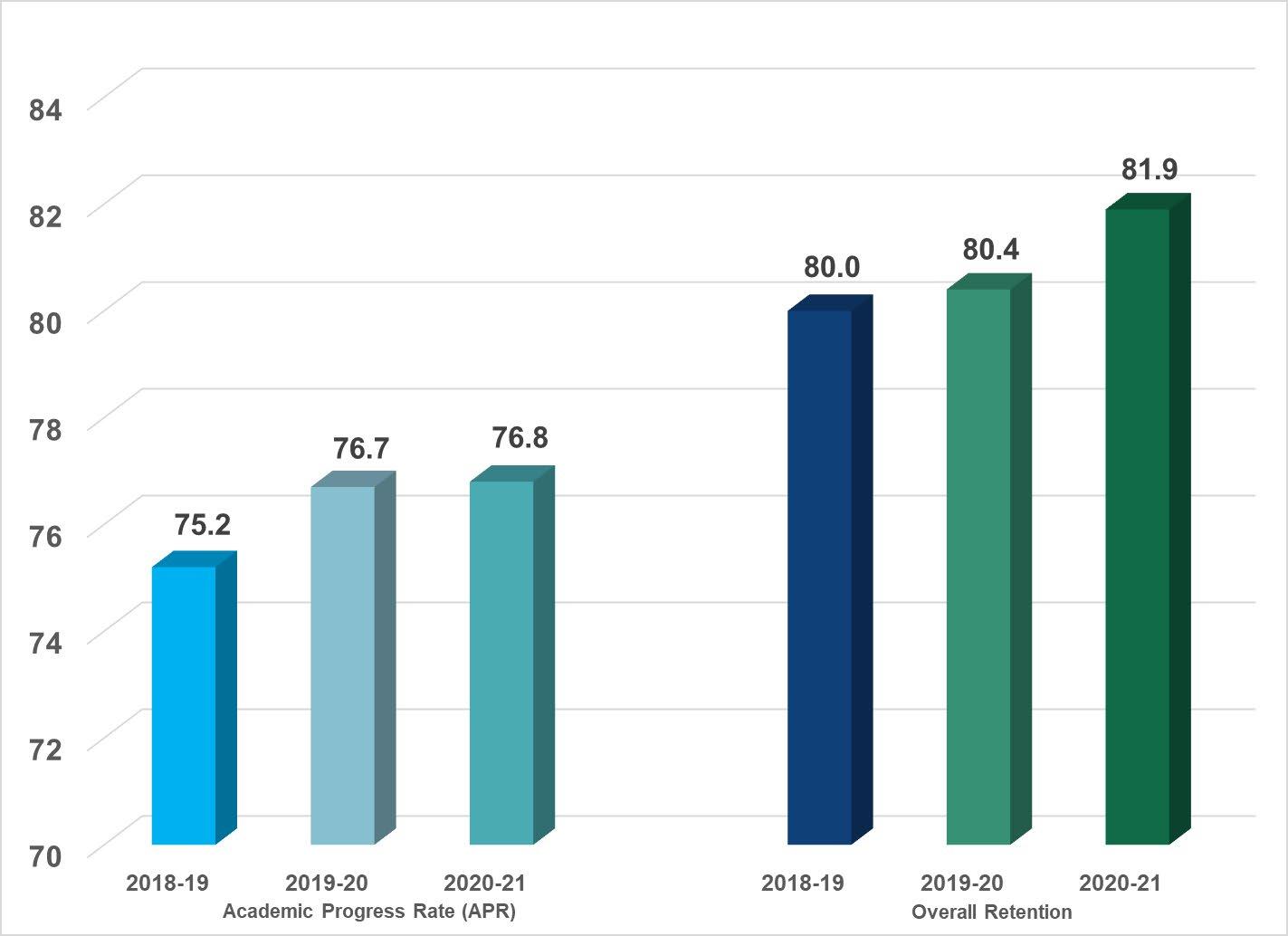

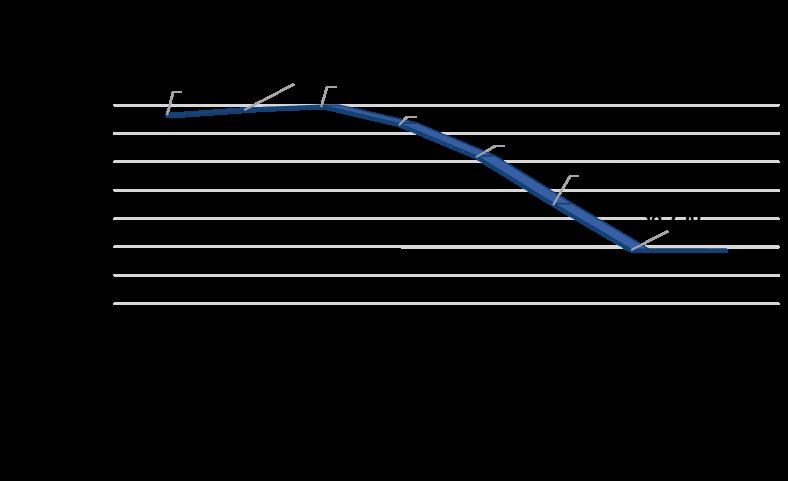

• Entire division of Student Success & Enrollment Management (SSEM) was created in 2018 between March 1 and July 1 to focus on improving FGCU's retention and graduation rate. It resulted in a widespread campus reorganization.

• A comprehensive, 4-year graduation rate improvement plan was created and approved by the Board of Trustees in September 2018.
• Numerous initiatives and programs, along with organizational changes, have been implemented since March 2018.
• Student Success Council formed in February 2020.
• Major accomplishments to increase retention:
• Created Enrollment Management Council (2018) and Student Success Council (2019)
• Created First-Year Experience & Retention Department (July 2018)
• Implemented new first-year program for the past 3 years – Eagles in 22, 23, 24

• Implemented SLS 1101 courses to decrease DFWs in biology and algebra (fall 2018)
• Launched Soar 4 Success pilot program to minimize DFW rates in at-risk freshmen (fall 2019) and resumed program in fall 2022
• Created First-Year Experience Task Force, leading to the creation of Eagles Read Program (fall 2020) and new Living Learning Communities
• Created new Academic Advising model (July 2018) with addition of Student Success Counselors in 2021 and new promotion and evaluation document for in-unit academic advisors (fall 2022)
• Expanded pre-semester immersion programs and summer boot camps (summer 2022)
• Created Eagle Success program to help decrease the number of students on academic warning and academic probation (fall 2019)
• Worked collaboratively with the College of Arts & Sciences and the Office of Scholarly Innovation and Student Research since fall 2018 to expand support for Learning Assistants to help decrease DFWs in lower-level, gateway courses (Biology, English, Math)

• Significantly increased the awareness and use of Eagle Link to track student engagement at student events since 2018

• Established 14 course coordinators in high DFW courses, creating consistency for the structure and function of multiple sections of each course (spring 2022)
• Shared the resources available in Center for Academic Achievement in Canvas for all new incoming FTIC students (2022)
• Implemented online tutoring platform to decrease DFWs in most challenging first-year courses
• Major accomplishments to increase graduation rates:
• Use descriptive, predictive, and prescriptive data analytics in creating intervention strategies to increase persistence and timely graduation (March 2018)
• Implemented specific cross-divisional college/school data analytics teams to increase Academic Progress Rate, 4-year graduation rates, 6-year graduation rate (Pell), and 3-year Florida College System AA transfer grad rates (fall 2022)

• Initiated intentional academic advising to ensure students graduate in 4 years (July 2018)
• Ensure students complete and document service-learning hours (spring 2019)
• Expanded summer term to help fourth-year students graduate (20182021)
• Records & Registration ensuring students are completing graduation applications in a timely manner (fall 2018) and graduation applications automatically roll over to the next term (fall 2020)
• Honors College enrollment increased significantly over past 3 years, along with the number of dual-enrolled students
• Revising current Soar in 4 program to emphasize an incentivized approach to retention and timely graduation (January 2020 – present)
• Created an office that focuses on retention and graduation efforts (fall 2019); finalizing university-wide communication plan to help students track and progress timely through degree (fall 2022)





FOCUS on implementing a comprehensive, coordinated enrollment management initiative
• Developed a new admissions strategy of shaping the incoming class by college/major (fall 2019)
• New deposit system
• New yield strategies to enroll in Eagle View Orientation (EVO)
• Optimized enrollment based on program capacity and demand
• Redesigned admissions recruitment, campus visits, and marquee events (spring 2020)
• Eagle Expo – recruitment fair
• Say Yes to the Nest – extensive interaction with faculty/colleges to convince admitted students to attend FGCU

• Transfer to the Nest – new event
• Return to the Nest Initiative/Talent Hub Designation (spring 2020)
FOCUS on implementing a comprehensive, coordinated enrollment management initiative
• Developed a course seat-tracker system to optimize prediction of courses for incoming freshmen and transfer students through Eagle View Orientation (fall 2018)
• Launched a campus-wide initiative to integrate National Association of Colleges and Employers' Career Competencies into the undergraduate student experience to help students gain professional competencies that will fully prepare them for employment and/or continuing education (fall 2019)
• Developed and implemented new marketing and communications plan for undergraduate and graduate admissions
• Implemented new technology to improve front-facing service of applying to FGCU and seamless tracking of students from application through orientation registration (spring 2022)

FOCUS on implementing a comprehensive, coordinated enrollment management initiative
• Implemented a new admissions recruitment strategy to increase the diversity of incoming FTIC class
• Increased Hispanic student population by more than 3 percentage points during the past 3 years
• FGCU is an Emerging Hispanic-Serving Institution status, with 24% of undergraduate student population (fall 2022)

• Implemented new Eagle Advantage Summer Bridge program (fall 2021)
• Completed renovation on state-of-the-art admissions office (fall 2022)
• Reorganized and restructured undergraduate admissions to create more focus on non-traditional students (fall 2021), transfer students (fall 2020), and international students (fall 2021)
FOCUS on implementing a comprehensive, coordinated enrollment management initiative
• Implemented new technologies to better assist students in applying to FGCU and facilitating their progression:

• Common Application system (spring 2019)
• Recruit CX is enhancing students' recruitment and application experience (fall 2019)
• VisitDays (spring 2020)
• Civitas Course Scheduling System (fall 2018)
• Digital Transcript Services (spring 2019)
• Slate (spring 2022)
• Workday Student (spring 2021 - ongoing)

FOCUS on delivering an affordable, high-quality education and eliminate or minimize the need for student debt
AVERAGE COST TO STUDENT (CUT ALMOST IN HALF)

FOCUS on delivering an affordable, high-quality education and eliminate or minimize the need for student debt
STUDENTS GRADUATING WITHOUT DEBT (INCREASED)


• Created a new, holistic approach to student financial services by increasing financial counseling, expanding the financial knowledge of academic advisors, and increasing the amount of financial aid workshops and materials offered (fall 2018)

• Repurposed and realigned all existing funding sources to better support student recruitment and retention (fall 2018)
• Built scholarships around the successful completion of 30 credits a year
• Increased student financial packages, awarding aid to more than 91% of students (spring 2021)
• Decrease the amount of federal student loans by 4% (spring 2021)
• Created intervention strategies that provide financial support to remove financial barriers and increase degree progression and completion (fall 2018)
• Gap funding
• Retention and persistence funding
• Significantly improved customer service by reducing the average wait times for students (fall 2019)
• Moved financial aid and scholarship services to remote, online call services/appointments
• Implemented bot (robot) and AI (artificial intelligence) technology to assist students
• Created a focused Enrollment Services Center for students (July 2020)

FOCUS on delivering an affordable, high-quality education and eliminate or minimize the need for student debt
• Leveraged merit scholarship funding with acceptance letters (spring 2020)

• Led campus efforts in establishing payment plans for students to pay their tuition and other costs associated with their education (fall 2019)
• Awarded the most funding in merit scholarships and gift aid in history, resulting in a decrease in the cost of degree (2019-20 and 2020-21)
FOCUS on providing intentional opportunities for student engagement with faculty and staff to build a sense of community and an atmosphere designed to achieve success
• Created a new Student Care Services office to better serve students in need (fall 2018)
• Expanded the First-Year Residential Experience Fellows program in SoVi (fall 2018)
• Optimized incoming student survey methods to improve response rates so we can better understand students’ needs (fall 2019)
• Implemented new student engagement customer relationship management system, Unifyed (fall 2020)

FOCUS on providing intentional opportunities for student engagement with faculty and staff to build a sense of community and an atmosphere designed to achieve success

• Career Development Services (CDS) developed a series of live, virtual workshops on resume building, interviewing, effectively utilizing LinkedIn, and a program entitled, “Pivoting Skills: How to Find a Job in a Time of Uncertainty” (spring 2020)
• Student Health Services serves as a clinical site for FSU Family Medicine
Residency program (summer 2019)
• Prevention & Wellness expanded its programming with Peer Care Educators and on-campus nutritionist (fall 2019)
FOCUS on providing intentional opportunities for student engagement with faculty and staff to build a sense of community and an atmosphere designed to achieve success

• New Campus Recreation & Wellness Center (fall 2019)
• New Counseling & Psychological Services Center (fall 2019)
• New Adaptive Services Center (fall 2019)
• New Exploratory & Career Advising Center (spring 2020)
• New Enrollment Services Center (spring 2020)
• New University Admissions Office (spring 2020)
FOCUS on providing intentional opportunities for student engagement with faculty and staff to build a sense of community and an atmosphere designed to achieve success
• Submitted two reports containing recommendations to further transform the Cohen Student Union (2019 & 2020)

• Design work completed for another renovation of Cohen Student Union (fall 2022)
• Renovation of second floors of McTarnaghan Hall and Howard Hall (in progress)
“I currently attend Boston University School of Law on a full tuition merit scholarship and will graduate with my J.D. in May. I have accepted a position as a corporate attorney at a big law firm in Miami.

I interned at the Education for Peace in Iraq Center through The Washington Center and then with the U.S. Department of State at the U.S. Embassy in Accra, Ghana (both in 2019). Through the support of the Honors College and the PAGES Program, I was able to secure these internships and receive funding to cover some costs. During both internships, I was given the opportunity to research, write, contribute to staff meetings, and much more. These professional experiences not only bolstered my resume, but they also helped me build confidence and learn how to communicate professionally.
The experiential learning experiences I had while at FGCU have been the foundation for my legal career.”
 Chisara Ibezim
2020, Political Science
Chisara Ibezim
2020, Political Science
FOCUS on providing intentional opportunities for student engagement with faculty and staff to build a sense of community and an atmosphere designed to achieve success

1. FOCUS on the further development of the Honors College

2. FOCUS on expanding internship opportunities and doubling the number of co-op educational and practicum experiences
3. FOCUS on creating new and/or refining existing programs that lead to high-wage, high-demand jobs
4. FOCUS on greater collective accountability for the Board of Governors performance metrics
5. FOCUS on increasing externally sponsored research by 100% in next 5 years
6. FOCUS on resources and structures to foster faculty research and scholarship while also expanding opportunities for undergraduate and graduate student research

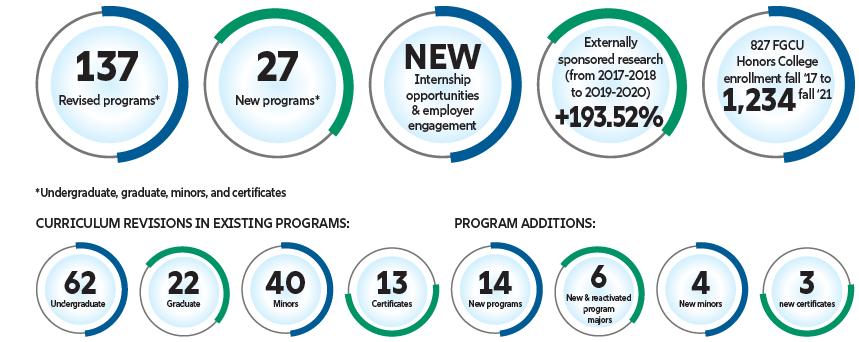
• Transitioned from Honors Program to Honors College (fall 2017)
• Became independent Honors College, separate from Undergraduate Studies (December 2019)
• Appointed first dean on January 1, 2021

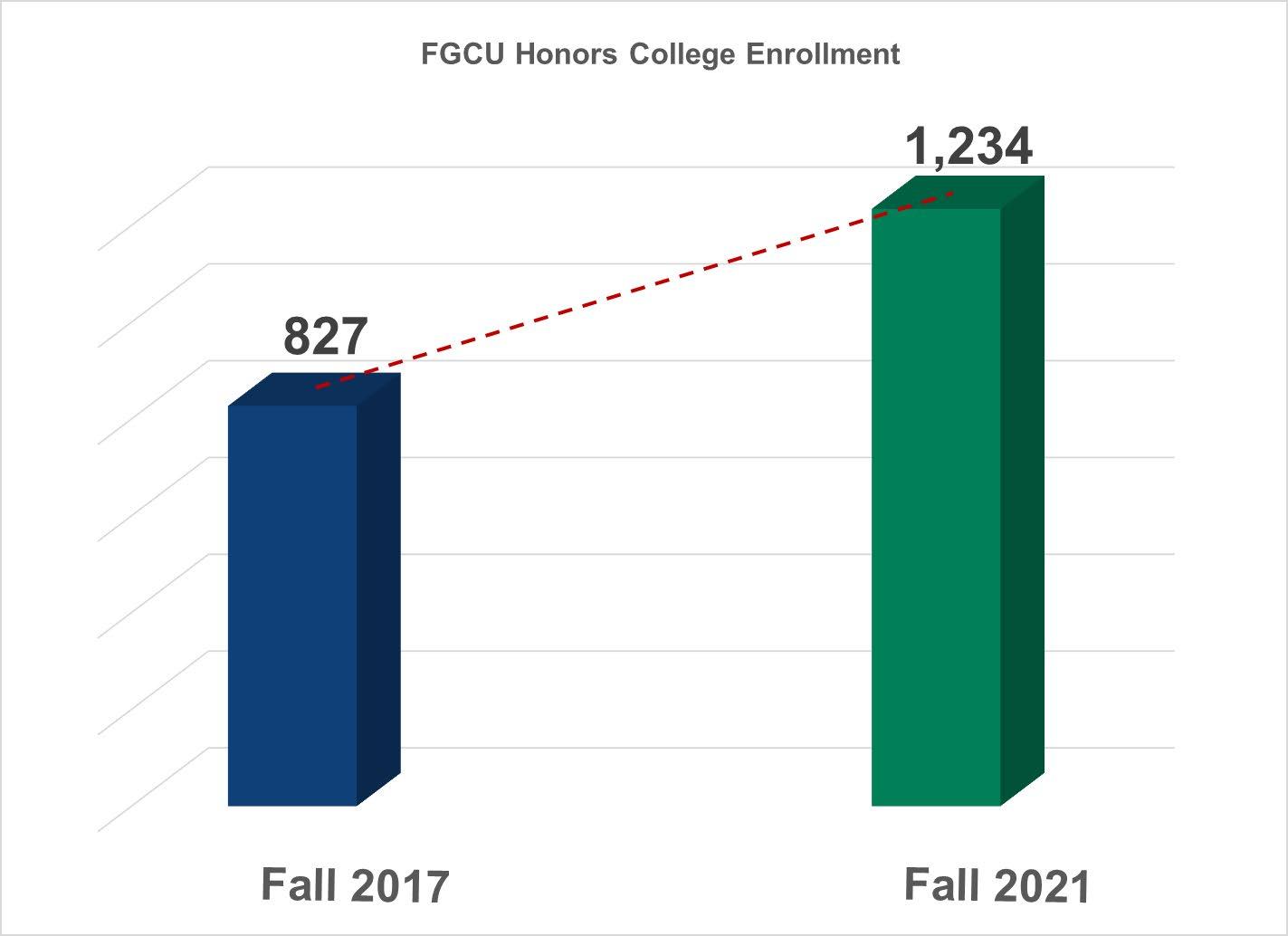



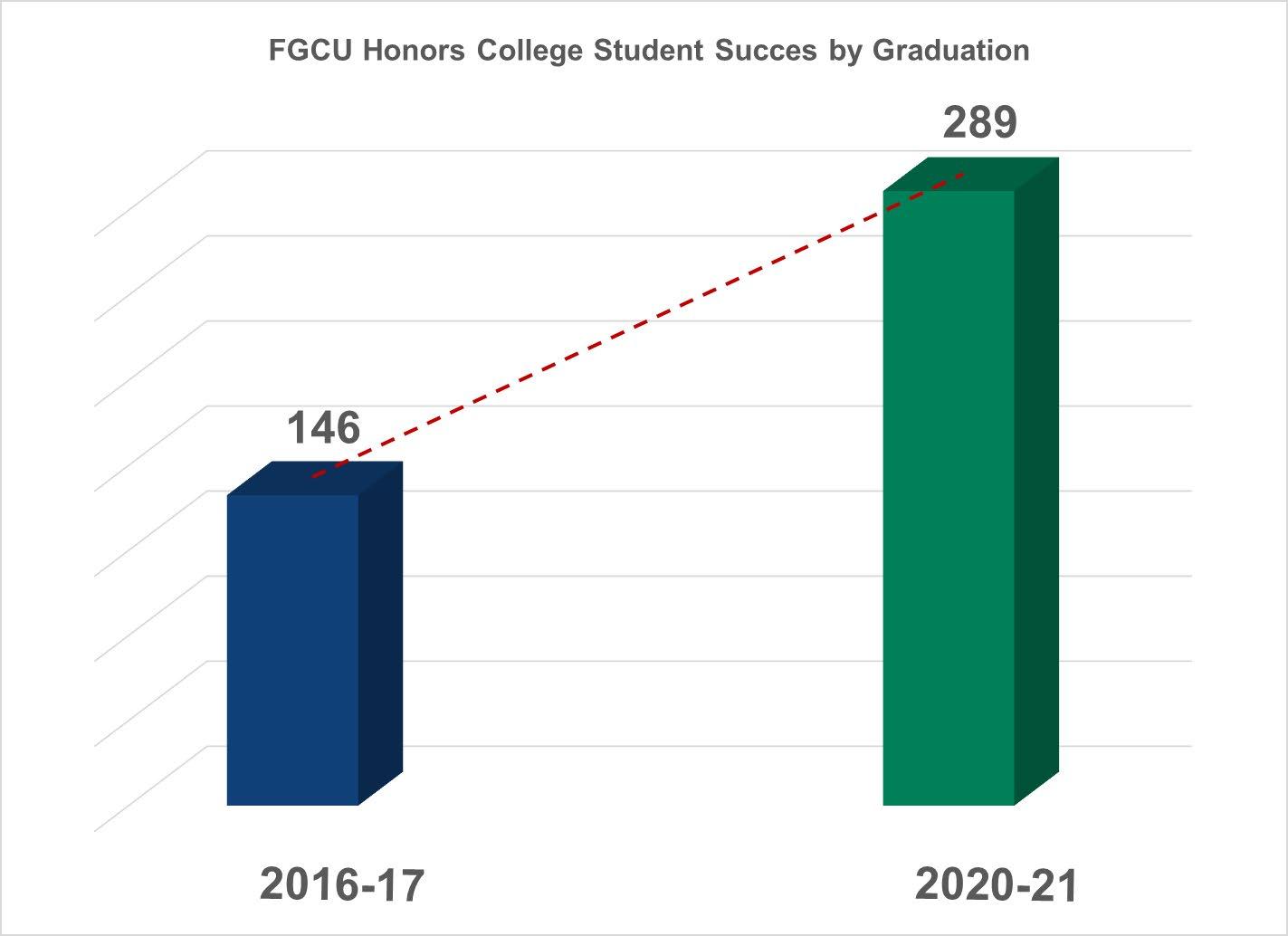
• Created the Office of Competitive Fellowships (OCF) (Summer 2019)
• Housed in the Honors College but works with all FGCU students.
• Since its establishment in 2019, OCF has served nearly 580 students with more than 3,041 one-on-one student appointments
• Over 253 applications for various awards have been submitted
• At least 96 students received awards, including 3 Goldwater Scholars, 5 Fulbright Awardees, 26 Gilman Scholars, and 2 National Collegiate Honors Council (NCHC) Students of the Year
• FGCU met criteria as a Fulbright Top Producer for a Masters Institution in 2022

• Created two new curricula to complement the original 12-hour Honors Program curriculum (fall 2017)
• Honors Scholars curriculum (24 hours of Honors credit, 9 must be upperdivision in major)
• Honors in-the-major curriculum (9 hours of Honors credit, upper-division in the major)
• Began digital badging initiative: Scholarly advancement, leadership development, community engagement, and cultural enrichment (fall 2020)
• 25 Honors students have earned midpoint for at least one badge, working on a total of 44 digital badges collectively (fall 2022)
• “Honors College” is now printed on the FGCU diploma of students who complete the curriculum, along with the name of their primary academic college

Staffing
• Created new coordinator of programming position (spring 2017): Coordinator of social media and events (spring 2021)

• Created new coordinator of outreach position (summer 2019)
• Created new position: Director of the Office of Competitive Fellowships (summer 2019): Assistant dean of the OCF (ongoing search in fall 2022, starting date TBD)
• Created new position: Associate director of the Honors College (summer 2019): Assistant dean of the Honors College (spring 2021)
• Created new position: Interim associate dean of the Honors College (fall 2022)
• Director of the Honors Program (summer 2015): Director of the Honors College (spring 2017): Dean of the Honors College (spring 2021)
International
• 28 of the 125 students that applied to study abroad (22.4%) were Honors students (academic year 2016-17)
• 45 of the 111 students that applied to study abroad (40.5%) were Honors students (academic year 2021-22)
• 40 students applied for the Fulbright U.S. Student Scholarships Program since fall 2020
• 4 students have been recipients of the Fulbright U.S. Student Scholarships Program since fall 2020
• In 2022, FGCU met the criteria for being a Fulbright Top Producer for a Masters Institution


• Created "Honors en Español" webpage and flyers in Spanish
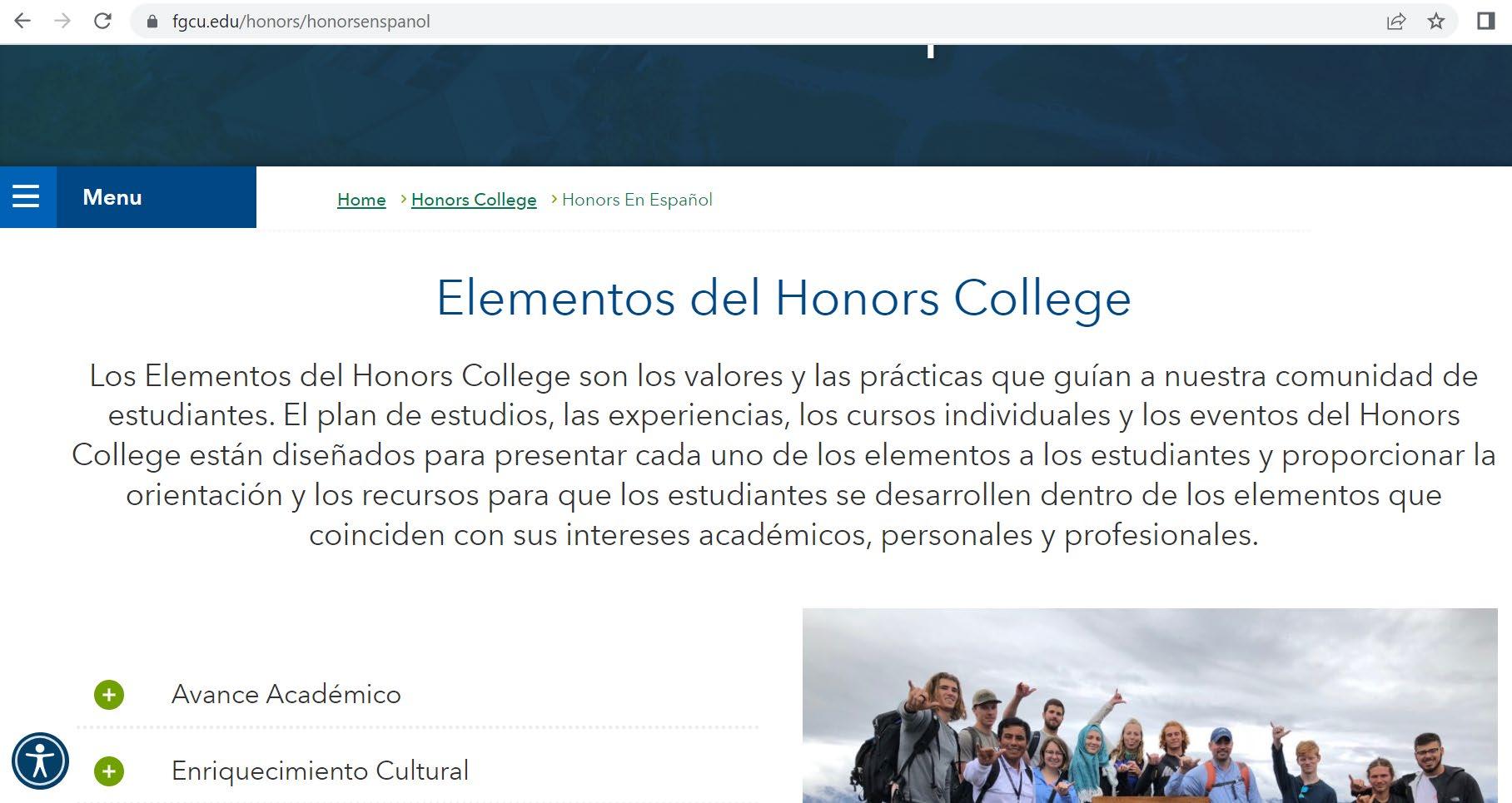
• Leadership:
• Hired director for Office of Internships & Cooperative Programs within Student Success & Enrollment Management (March 23, 2020 - no director August 2018 to March 2020)

• Formed Internship Leadership Team in 2019
• Academic Internships:
• Total number of students completing course-based internships: 13,000 (fall 2017 to spring 2022)

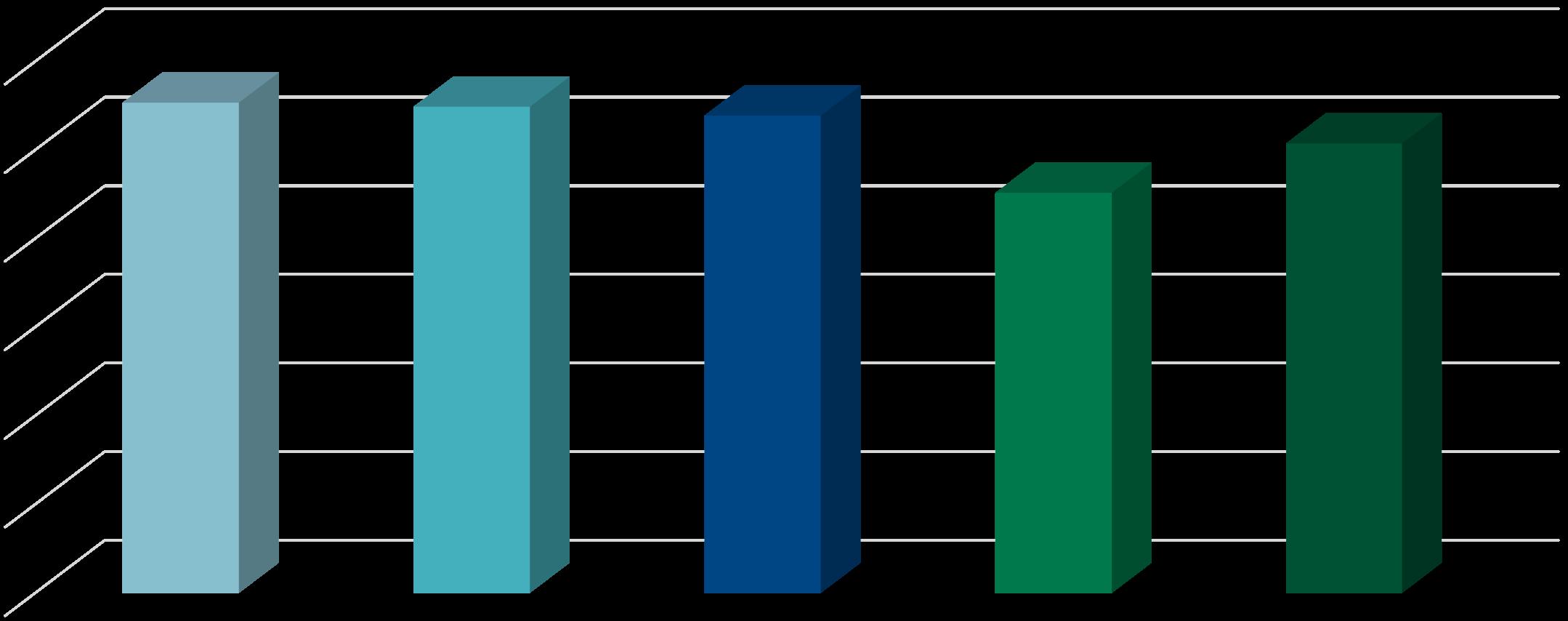

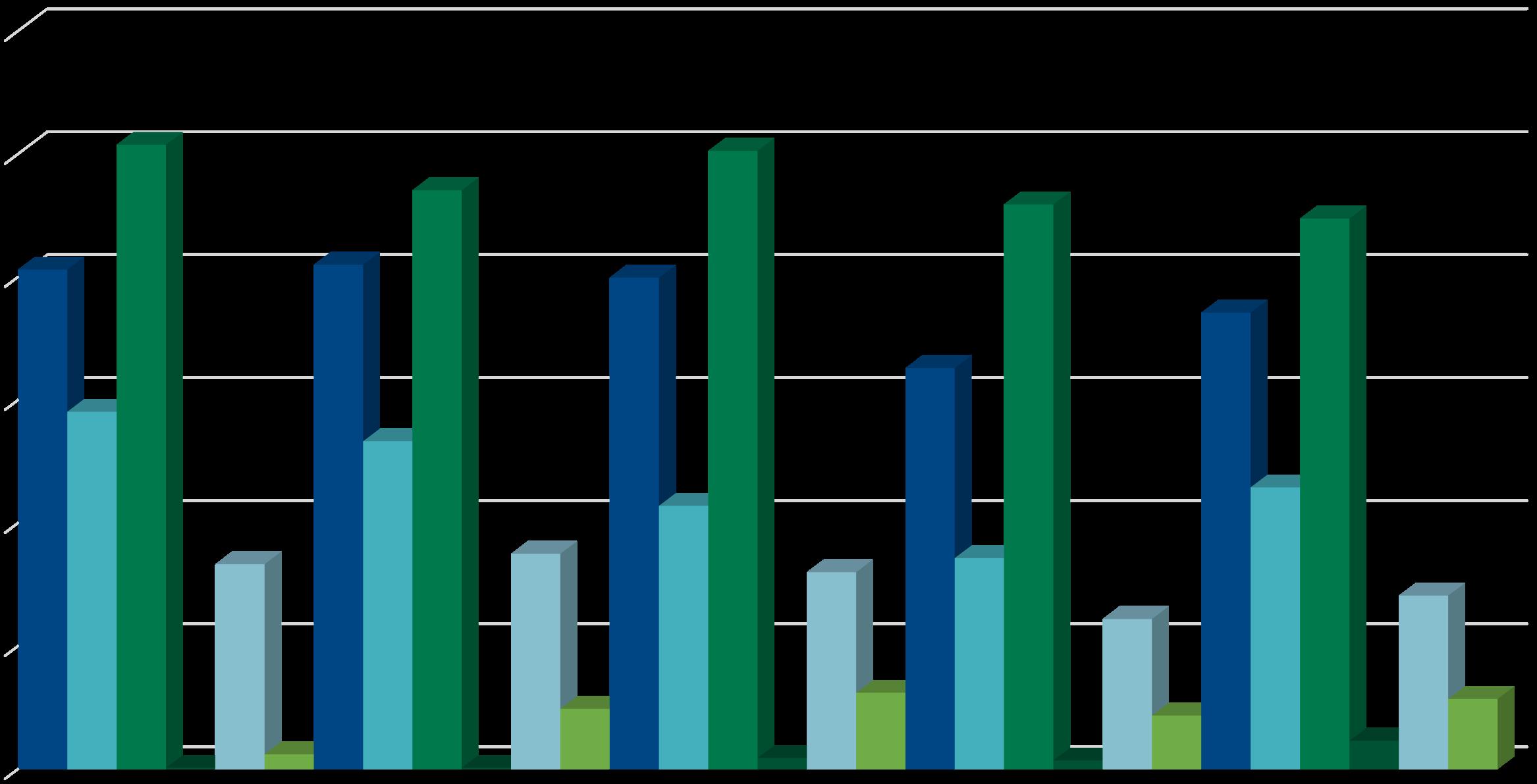
• Course Creation and Program Integration:
• Office of Internship and Cooperative Programs developed
2 non-discipline-specific internship and co-op courses (2018)
• Enrollment from fall 2018 to spring 2022: 407
• Addition of required internship in journalism major
• Efforts to increase the number of programs requiring internships
• Non-Academic Internships:
• Soar in 4 application for non-academic internships approval
• Records and hours entered into Eagle Career Link

• Internship Coordinators:
• Internship Leadership Team – Connect, communicate, collaborate with all faculty/staff affiliated with internships across the campus
FOCUS on expanding internship opportunities and doubling the number of co-op educational and practicum experiences
FOCUS on expanding internship opportunities and doubling the number of co-op educational and practicum experiences
• Employer Relations/Eagle Career Link:
• Increased employer profiles in Eagle Career Link to 5,391 (115% increase from 2020)

• Extensive research into key employers in SWFL and statewide
• Continuing to compile competitive internship opportunities locally and internationally
• Developed comprehensive Employer Internship Handbook
• Student Communication and Engagement:
• $1,000 internship awards for unpaid internships
• Annual calendar of application processes and completion timeliness
• One-on-one coaching for competitive internships
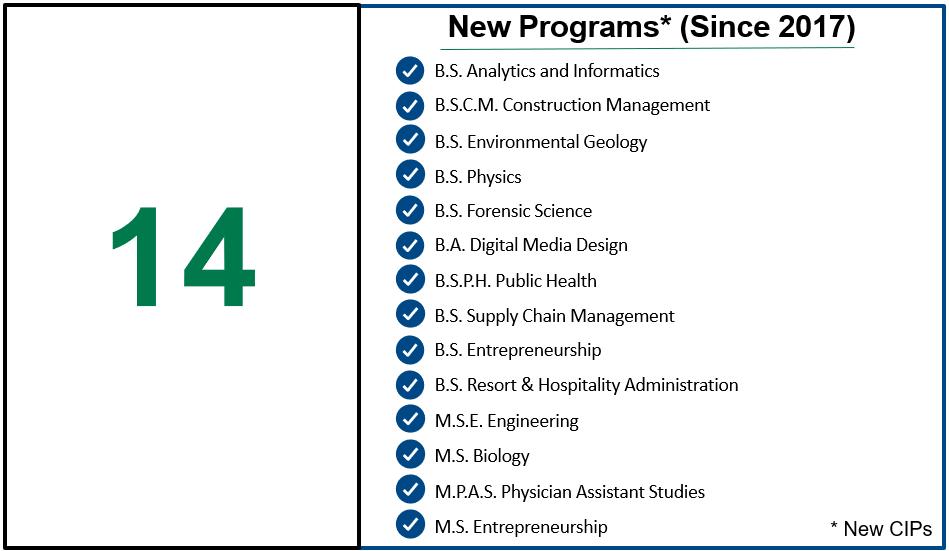





OBJECTIVE 3: FOCUS on creating new and/or refining existing programs that lead to high-wage, high-demand jobs
Fall 2019
First Term Offered

FOCUS


3: FOCUS on creating new and/or refining existing programs that lead to high-wage, high-demand jobs





OBJECTIVE 3: FOCUS on creating new and/or refining existing programs that lead to high-wage, high-demand jobs

FOCUS

FOCUS on creating new and/or refining existing programs that lead to high-wage, high-demand jobs
6
New and Reactivated Program Majors*
B.S. Chemistry
B.S. Music
B.S. Health Administration
M.S. Information Systems and Analytics

D.N.P BSN to DNP Nurse Anesthesiology
D.N.P MSN to DNP Nurse Anesthesiology
* Under existing CIPs Since 2017
OBJECTIVE 3: FOCUS on creating new and/or refining existing programs that lead to high-wage, high-demand jobs
4 3
New Minors*
Agribusiness
Forensic Studies
Professional Sales
Race and Ethnic Studies
New Certificates*
Community Resilience
Entrepreneurship
Medical Social Work
* Through the Process of FGCU Curriculum Development Guidelines & Procedures (Since 2017)

FOCUS on creating new and/or refining existing programs that lead to high-wage, high-demand jobs
Curriculum Revisions in Existing Programs*
Undergraduate Graduate Minors Certificates
* Through the process of FGCU Curriculum Development Guidelines & Procedures since 2017


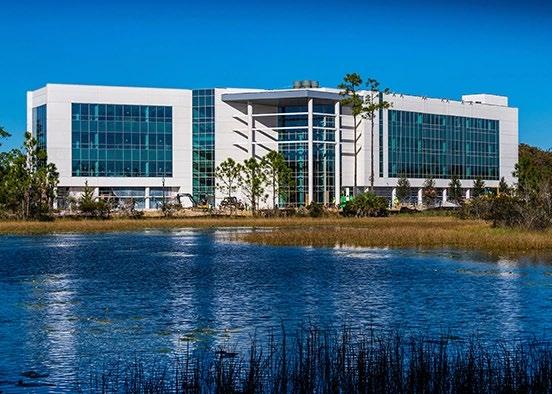


OBJECTIVE 3: FOCUS on creating new and/or refining existing programs that lead to high-wage, high-demand jobs
Micro-credentialing and Digital Badges @ FGCU

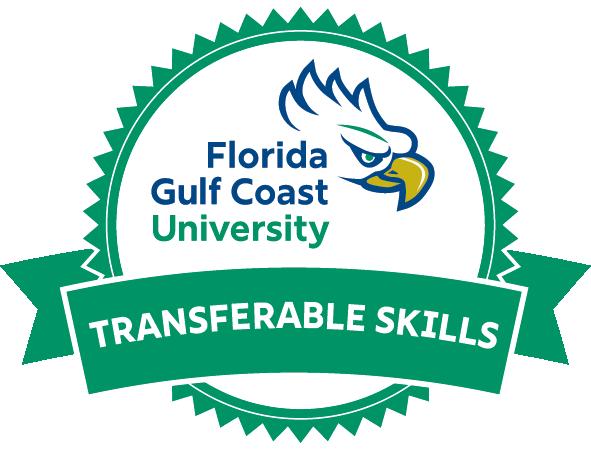



Competency-based Business/Industry-Driven Regional and Community Relevant Learner Centric
Focus on skills, knowledge and abilities for specific industries
Showcase career readiness for NACE* competencies, etc.
*NACE: National Association of Colleges and Employers
Focus on upskilling, reskilling and professional development
FOCUS on creating new and/or refining existing programs that lead to high-wage, high-demand jobs
Developed to increase access to academic programs to promote degree completion to assist to reach Governor’s Sail to 60 (a forward thinking workforce education package) and FutureMakers Coalition’s 55% credentialing beyond high school goals.

Tactic
Retention- and Graduation-related Metrics (4, 5, 9): In 2022, college-specific goals for retention and graduation rates were set using a data-analytics approach. Data teams and deans share accountability for university goals through pursuit of unit-level goals.
New Programs of Strategic Emphasis (Metric 6): In the last 5 years, FGCU has added undergraduate degree programs classified as PSE:
• Computing & Data Science
• Physics
• Environmental Geology
• Construction Management
• Analytics & Informatics
• Digital Media Design
• Health Administration
• Forensic Science
• Supply Chain Management
• FinTech
All Retention and Graduation Metrics (4, 5, 9): In the past 5 years, FGCU has built two high school dual enrollment programs and three “2+2” articulation agreements with community colleges to enhance preparation of incoming freshmen and transfer students.

Academic Progress Rate (Metric 5): Course Coordinators for the 14 freshman courses with low passage rates are implementing best practices to improve performance of first-year students; Soar 4 Success residential education pilot program created (fall 2019) and reinstated (fall 2022) to improve DFW rates in freshman courses.
Academic Progress Rate (Metric 5): Departments of Biology, Economics & Finance, Chemistry & Physics, Mathematics and the College of Engineering hold pre-semester “boot camps” for incoming freshmen; pre-semester immersion programs (Scholarly research, pre-med, education, business, Resort & Hospitality Management, and justice studies created).
Percentage of graduates enrolled or employed (Metric 1): FGCU launched its transferable skills badging initiative in fall 2022 to allow students to pursue 8 career-readiness competencies prior to graduation.



• U.A. Whitaker College of Engineering initiated a Research Incentive Fund donated by Drs. Burtt and Ruth Holmes to provide a 3% reward to in-unit faculty upon the award of externally funded research grants greater than $50,000.

• The Whitaker Center for STEM Education received funding for the Holmes Development Fund to seed collaborative research efforts that would result in external proposal submission.
o 6 faculty submitted 9 external proposals resulting in 5 funded grants.
• College of Education has a partnership with CEEDAR, a federally funded initiative that supports teacher preparation in fostering research and scholarship with students in the field of education.
• Communities in Transition Program (Summer Community-Engaged Research)
o 5 grants ($547,253) from the 2018 program
o 3 grants ($232,484) and 3 pending from the 2019 program




FOCUS on resources and structures to foster faculty research and scholarship while also expanding opportunities for undergraduate and graduate student research




The Office of Scholarly Innovation and Student Research (SISR)
(formerly Office of Undergraduate Scholarship)
Facilitated Faculty Productivity
Promoted CommunityEngaged Scholarship
Sponsored Facultymentored Student Research

Promoted Student Publications

Engaged in Research and
Scholarly Events
FOCUS on resources and structures to foster faculty research and scholarship while also expanding opportunities for undergraduate and graduate student research
Facilitating Faculty Productivity
• Seidler Summer Fellowships, sponsored by the Seidler Family
• Approximately 1/3 of the awards were in non-STEM areas.
• Whitaker Center for STEM Education Summer Research
Scholarships: Blair Foundation and the Brodie Foundation
• Funds to support students to conduct research during the summer with FGCU STEM faculty.

• W.i.S.E.R. (Work in Scholarly Experiences & Research) Program for student research assistants
• Enables faculty to hire student research assistants from historically excluded populations and students who have financial need or experience other barriers that prevent their participation in research opportunities.
6: FOCUS on resources and structures to foster faculty research and scholarship while also expanding opportunities for undergraduate and graduate student research
• Faculty who have worked with undergraduate and graduate students are more productive in obtaining external grants and in publishing.



• Not only are faculty more productive, but participation in research positively impacts students. For example, undergraduate students employed through the WiSER Program earned higher GPAs and completed more credit hours during the semester that they participated in the program. Furthermore, students graduated in 4.05 years as compared to the university-wide average of 4.53 years.


FOCUS on resources and structures to foster faculty research and scholarship while also expanding opportunities for undergraduate and graduate student research
FGCU's College of Education markets and publishes the Journal of Formative Design in Learning (JDFL) in conjunction with Springer and AECT. It is now listed among the top 50 journals worldwide out of 394 for readability as an emerging scholarly journal.

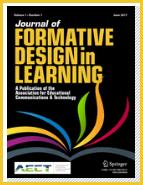
Community-Engaged Scholarship through SISR
• Communities in Transition Program (Summer Community-Engaged Research)
• Faculty-student-community partner teams pursue projects that focus on regional concerns with the goal of improving the natural and human communities in the region.

• Faculty have been awarded $687,184 in external grants to continue their work.
• Partnering of FGCU faculty and students with community organizations and agencies.
• The Office of Scholarly Innovation and Student Research (SISR), in conjunction with the Office of Service-Learning & Civic Engagement, facilitates collaborative efforts between FGCU faculty and students and community partners to fulfill mutually beneficial research needs.

• Support graduate and undergraduate research, creative, and scholarly endeavors across all academic programs and modes of scholarship. The funds can be used to purchase supplies, travel to research sites (graduate students only), or present research.


• An attribute designating courses in which undergraduate students actively engage in elements of the research process through projects and assignments that make an intellectual or creative contribution to the discipline or practice.
• Focuses on each step of the research process and how interpreting evidence informs theories and how refining ideas based on supportive and contradictory evidence applies to the classroom, courtroom, and boardroom.
FOCUS on resources and structures to foster faculty research and scholarship while also expanding opportunities for undergraduate and graduate student research
Student Publications promoted by SISR
• Aquila: The FGCU Student Research Journal


• Student-run academic research journal featuring scholarly articles from all academic disciplines.

• Mangrove Review: The FGCU Creative Journal

• Student-run literary journal featuring poetry, fiction, creative non-fiction prose, and artwork.
• Florida Undergraduate Research Journal (FURJ)
• Currently housed at FGCU, FURJ publishes scholarship peer-reviewed according to disciplinary standards. It provides students from across Florida with a venue for publication that is a step beyond their campus journal.
to foster faculty research and scholarship while also expanding opportunities for undergraduate and graduate student research
Research and Scholarly Events
• Florida Undergraduate Research Conference (FURC)
• SISR organized and FGCU hosted 800 students from colleges and universities across the state



• Research Day@Eagle X
• Community Engagement Day
• College of Education Research Symposium
• STEM Undergraduate Research and Internship Symposium
• Showcase on Undergraduate Research Experiences
• Public Administration Professional Networking Workshop
• Seidler Fellowship Showcase
• ASPIRES Undergraduate Mathematics Conference
• Natural Sciences Undergraduate Student Symposium
• Social Sciences Conference
• Philosophy Annual Conference
• Undergraduate Humanities Research Symposium
• Communications Public Speaking Competition
FOCUS on resources and structures to foster faculty research and scholarship while also expanding opportunities for undergraduate and graduate student research
Research and Scholarly Events (cont).
• Language and Literature Research Night

• International Film Festival
• Faculty readings and storytelling events
• Research Networking Events (e.g., STEM, social justice, creative writing)
• Moonlight on the Marsh Distinguished Lecture Series
• Whitaker Center STEMinar Series
• Liebert Lecture annually each fall and spring
• Sanibel Writer’s Conference
• Bower School of Music & the Arts (2017-2019)
o Music: about 30 student recitals
o Art: about 8 exhibits and special events
o Theater: about 2 performances
• Honors College/Naples Discussion Group Lecture Series
• Honors Thesis Presentation Week
• FGCU Research Roadshow


FOCUS on resources and structures to foster faculty research and scholarship while also expanding opportunities for undergraduate and graduate student research


"To me, FGCUScholars is enrichment of the mind and passion. Through scholarly activities, you open up numerous pathways to things you'd never thought of as interesting."
Tia Payton FGCUScholar Ambassador

1. FOCUS on growing the Institute for Entrepreneurship so that it serves as the nucleus of all campus-wide entrepreneurial initiatives, which could be expanded further into an interdisciplinary college.
2. FOCUS on creating an entrepreneurial mindset throughout the university community.
3. FOCUS on FGCU becoming the catalyst of entrepreneurship within Southwest Florida and the state.


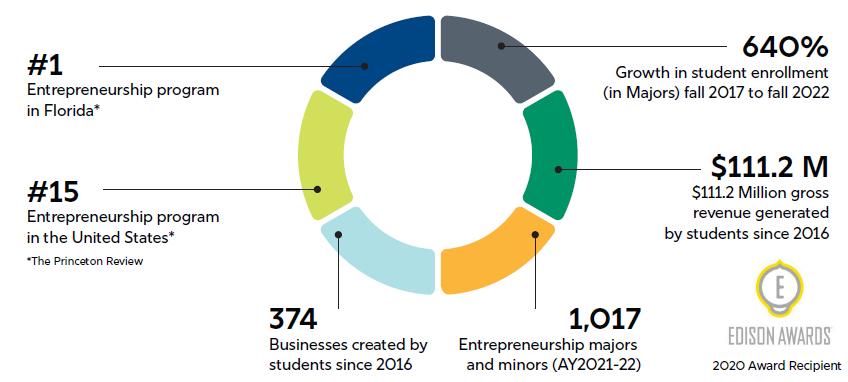
FOCUS on growing the Institute for Entrepreneurship so that it serves as the nucleus of all campus-wide entrepreneurial initiatives, which could be expanded further into an interdisciplinary college
• Private gift led to naming the Daveler & Kauanui School of Entrepreneurship
• Opened 3-story building (Lucas Hall) in July 2021
• Increased Princeton Review ranking from #29 to #15 nationally in 2022
• 1,017 majors and minors enrolled through academic year 2021-22
• 134 sections of entrepreneurship courses offered for academic year 2021-22
• 227% positive change in student contact hours from fall 2017 to fall 2022

• Graduated 140 students in academic year 2021-22
• Launched the M.S. Entrepreneurship Program (fall 2021)
• The Digital Media Design (B.A.) moved to the School of Entrepreneurship
$10.5 Million Raised


• 166 Runway Program participants in academic year 2021-22
• Since 2016, students have created 374 businesses and have generated over $111.2 million in gross revenue
• Active alumni participation in the Runway Program
• Partnership with Tel Aviv University summer program for students
• 59 Entrepreneurship Faculty Fellows from 22 FGCU Departments infused entrepreneurship mindset to the FGCU curriculum

FOCUS on FGCU becoming the catalyst of entrepreneurship within Southwest Florida and the state


• Veterans Entrepreneurship Program (3 cohorts annually)
• Since 2016, veterans have started 125 businesses and have generated over $40 million in gross revenue collectively
• Expanded partnerships with Immokalee Foundation (ENT. Summer Camp), Pick-Up-The-Ball (Dunbar), Babcock Ranch, Quality of Life Center, Veterans Florida, the Collier County Public Schools -a High School Competition-, and Junior Achievement (CEO Camp)
• Robust mentorship program: 80+ mentors
• Created dual-enrollment programs for area high schools
• Entrepreneurial Mindset Micro-credential and Digital Badge Program to be offered to all learners

“The Daveler & Kauanui School of Entrepreneurship at FGCU gave me the skills and knowledge I need to succeed in the next chapter of my life. The faculty at FGCU guided, assisted, and motivated me during times when I felt like giving up. Additionally, if I ever need help sometime in the future, I know I have a home in FGCU that will welcome me with open arms.”
Andre Green Entrepreneurship Major

1. FOCUS on all clinical disciplines within healthcare and further establish the Marieb College of Health & Human Services in the region, state, and beyond as Florida’s university for preparing students for all careers in healthcare, except for allopathic and osteopathic medicine
2. FOCUS on establishing on-campus and off-campus, faculty-led practice clinics in primary care, rehabilitation, fitness, and behavioral health that serve as clinical laboratories which can generate alternative revenue to support student and faculty success
3. FOCUS on developing advanced interprofessional graduate programs that are research based, with the goals of improving patient care, treatment interventions, and clinical outcomes

4. FOCUS on developing other degree programs external to Marieb College that will expand our commitment to improving health and wellness and broaden interprofessional education and research collaborations across the colleges
5. FOCUS on promoting personal development, physical and mental health, wellness, and safety as foundations for student success and academic excellence



FOCUS on all clinical disciplines within healthcare and further establish the Marieb College in the region, state, and beyond as Florida’s university for preparing students for all careers within healthcare, except for allopathic and osteopathic medicine
• New Doctor of Nursing Practice (DNP) degree track: Psychiatric Mental Health Nurse Practitioner planned for spring 2023

• Clinical Laboratory track in molecular diagnostics
• Doctor of Nursing Practice – Nurse Anesthesiology admitted third cohort
• Physician Assistant Studies: Graduated third cohort of students. Moved from provisional accreditation to full accreditation for 10 years, can expand programs in 2 years
• Expansion of Masters Social Work – Medical SW Certificate
• Exploring collaboration with UCF in communication studies/speech pathology
FOCUS on all clinical disciplines within healthcare and further establish the Marieb College in the region, state, and beyond as Florida’s university for preparing students for all careers within healthcare, except for allopathic and osteopathic medicine
• Received $2.4 million from Prepping Institutions, Programs, Employers and Learners Through Incentives for Nursing Education (PIPELINE) and $1 million total Linking Industry to Nursing Education (LINE) funding to double the School of Nursing
• 2 micro-credentials - medical device industry and senior care partner. To date, 18 students have earned badges.
• Launched Shady Rest Institute on Positive Aging – fall 2022
• SCH/tuition growth
• Academic year growth of 13.28% in student credit hours since 2017
• Academic year growth of 19.47% in summer year-over-year tuition growth since 2016 (not included in Rebalancing Report)

“As I think back on my last four years, I am feeling grateful for the amount of opportunities that FGCU has offered me that were impactful and valuable for my future success. I was not only able to obtain a great education at FGCU, but also my first job where I made great connections and learned important interpersonal skills. As someone who loved to stay involved, the various organizations and events offered here also helped me with professional development and discovering my career interest in mental health counseling.”
 Casandra Sanchez Major
Casandra Sanchez Major

FOCUS on establishing on-campus and off-campus, faculty-led practice clinics in primary care, rehabilitation, fitness and behavioral health that serve as clinical laboratories which can generate alternative revenue to support student and faculty success
• Approved business plan for new faculty-run physical therapy clinic where students can earn hands-on experience with patients

• Examining a plan for the Community Counseling Center to be an interprofessional training center
• Integrating research activities into provision of care on/off campus
• Partnership with The Immokalee Foundation
• Over 250 clinical partners utilized as student-placement sites for clinical and non-clinical preparation
• Home Base Southwest Florida program moved to Kleist Health Education Center
FOCUS on developing advanced interprofessional graduate programs that are research-based with the goals of improving patient care, treatment interventions, and clinical outcomes

• Revising MSHS curriculum to acquire Commission on Accreditation of Health Management Education (CAHME) accreditation
• Initiating a concentration in Psychiatric Mental Health Nurse Practitioner (PMHNP) Program – Secured first year of what is expected 4-year support of faculty member.
• Developing interprofessional supervision opportunities of internship students with counseling and social work teams
• Examining and expanding opportunities between Public Health Program and The Water School
• Examining master’s degree in nutrition with gerontology focus
FOCUS on developing other degree programs external to Marieb College that will expand our commitment to improving health and wellness and broaden interprofessional education and research collaborations across the colleges
• Launched Shady Rest Institute on Positive Aging with $5 million support
• Joint coursework/faculty with Lutgert College of Business in healthcare

• Micro-credential development in all disciplines
• Joint appointments in The Water School
• Interprofessional research teams formed for scholarship
• Strengthening partnerships with Neogenomics, Elite DNA Therapy, Arthrex, David Lawrence Center, NCH, Lee Health
• Launched senior care partner micro-credential
FOCUS on promoting personal development, physical and mental health, wellness and safety as foundations for student success and academic excellence

• Increased Honors student enrollments from 21 (2017) to 177 (2022)
• Faculty-led initiative: MCHHS Diversity and Inclusion Committee
• Faculty-led initiative: MCHHS Scholarship Committee
• Faculty development financially supported by MCHHS Foundation
• Academic advisors integrated in college culture
• Expanded data analytics and use of Tableau to track student success
• Early referral for students/faculty/staff under duress

1. Focus on increasing awareness of our people, programs, and impact
2. Focus on strengthening our outreach, engagement and ties to our region
3. Focus on building partnerships and relationships with five SWFL school districts, area businesses and organizations to optimize opportunities to apply FGCU expertise to support the region’s economy, model innovative and sustainable practices, and advance the community
4. Focus on engaging and building loyalty among our alumni and strengthening fundraising efforts



• University Marketing & Communications (UMC) expanded The FGCU Effect brand campaign to highlight FGCU’s people, programs, and impact via buses, billboards, airport signage, digital advertising, social media, and radio.
• Followed that campaign with the Ideas to Impact campaign highlighting the university's 25th anniversary.
• Introduced and branded The Water School at FGCU to include a press launch, marketing materials, advertising, and title sponsorships of the Water Summit, Imagine Solutions, and Naples Next. To date, 92 public presentations have been made.
• Created a media relations strategy designed to position Florida Gulf Coast University as a resource for the community. As a result:
• In FY22, FGCU was mentioned 11,604 times in media (valued at more than $19.7 million) for topics other than Athletics (Cision).

• Partnered with WINK News to create panels of FGCU experts who could help the public understand complex issues related to COVID-19 and the death of George Floyd.
• FGCU and its faculty have appeared in many national outlets including USA Today, Inside Higher Ed, CNN, The Washington Post, and others
• Enhanced FGCU’s digital presence with a redesigned website that is fully ADA compliant; implemented new content management system and cloud-based hosting.

• Rebranded and redesigned both print and digital FGCU360 Magazine to expand reach, enhance content, and consistently deliver good news
• Created branded marketing materials for the School of Entrepreneurship, Marieb College of Health & Human Services, the College of Education and The Water School.
• Rebranded the Renaissance Academy to the FGCU Academy to increase awareness, better connect to the University, and engage donors
• Increased social media engagement on the most impactful platforms.
• Followers on Facebook, Instagram, Twitter, and LinkedIn have increased by 28%
• In FY22 the content elicited 807,307 engagements (likes, comments, shares, etc. combined)
• WGCU has begun implementation of a 5-year plan to double its resources to significantly expand its news and culture coverage of SWFL

• Countless faculty and staff serve important roles as resources for and members of community organizations throughout Southwest Florida
• Most colleges actively encourage community members’ participation in classes as mentors and advisory board members
• Students and Seniors community-outreach project provides hope and comfort to Fort Myers-area seniors through letters, cards, artwork, and videos produced by FGCU students during COVID-19. More than 300 students are earning servicelearning hours in this program
• Mathletes Circle is a community-outreach event organized by the Department of Mathematics for middle school students in grades 7 and 8. This program offers a 5-day summer camp, Saturday Mathletes Day sessions during spring and fall, and conducts MAA American Mathematics Competitions exams
Focus on strengthening outreach, engagement and ties to our region
• The Whitaker Center, the College of Arts & Sciences, Marieb College of Health and Human Services, College of Education and the School of Entrepreneurship organize summer camps through The Immokalee Foundation
• The Watershed Education for a Resilient Southwest Florida (WATERS) program is an 8-week after-school program that provides climate change education for underserved youth in Collier County and training for non-formal educators to gain competency in climate change education as part of their afterschool programming.
• STEM summer camp for high school girls
• The FGCU Cancer Research Program has partnered with the American Cancer Society to assist in planning and executing community events

Focus on strengthening outreach, engagement and ties to our region
•
The Cannabis Research, Education, and Workforce initiative has developed professional relationships with many of the Medical Marijuana Treatment Centers in the area
• Both Athletics and the Bower School of Music & the Arts continue to play an important role as the "front porch" of FGCU in the community.
• The Bower School and Marieb College have executed an MOU with the Southwest Florida Music Education Center to work with neurodivergent students.

In the 2022 academic year, FGCU students recorded 654,901 service-learning hours with over 400 community organizations. Cumulative total now stands at 4.4 million hours.




Focus on strengthening outreach, engagement and ties to our region
• Restarted a program that allows students to earn their Federal Work Study award to work with our non-profit partners, gaining real-world experience
• Celebrated our 25th anniversary with a campus-wide open house – FGCU Day - and invited the community to come and participate.

• Host community engagement events such as Make a Difference Day (sponsored by Wells Fargo) and Comcast Cares Day (sponsored by Comcast/NBC Universal) to assist more than 20 local non-profit agencies with more than 400 faculty, staff, and students volunteering throughout the community each year
• Annually contribute to more than 40 regional and diverse community organizations and chambers that are partners in education, culture, health care, business development, and social initiatives
• Annually host more than 25 community lectures, special events, and engagement opportunities to improve the quality of life and stimulate intellectual conversations in the community
Focus on strengthening outreach, engagement and ties to our region
• FGCU Invitational Math Competition attracts middle and high school students from around the state, hosting over 1,200 students annually
• Coding Academy gives several hundred elementary and middle schoolers the opportunity to explore programming and robotics
• The Honors College hosts Immokalee Immersion Weekend for service learning and to learn about the community. Honors students have started a StudentFarmworker Alliance RSO, and have hosted the Coalition of Immokalee Workers at numerous campus events
• Partnership allowing students who complete the Honors Program at Florida Southwestern State College to seamlessly transfer to the Honors College at FGCU

Focus on strengthening outreach, engagement and ties to our region
• FGCU sponsors a youth group at Naples Accelerator

• Whitaker College of Engineering's VIP program engages high school students as early as sophomore year in engineering-related activities and networking with current FGCU engineering students
• The Engineering Ambassador Program trains and mentors engineering students to conduct K-12 outreach activities including school presentations, tours, and panel sessions
• In conjunction with the Heartland Consortium, the college provides programming for STEM students
Focus on building partnerships and relationships with our five school districts, area businesses and organizations to optimize opportunities to put FGCU expertise to work to support the region’s economy, model innovative and sustainable practices, and advance the community

President’s Advisory Circle on Workforce and Economic Development

Focus on building partnerships and relationships with our five school districts, area businesses and organizations to optimize opportunities to put FGCU expertise to work to support the region’s economy, model innovative and sustainable practices, and advance the community

• Partner with Arthrex, Gartner, NeoGenomics, Hertz, Scotlynn and other large organizations for specific workforce development initiatives
• Naples Accelerator partnership with the Collier County Commission
• Micro-credentials and digital badges initiative for workforce development
• "Return to the Nest" Initiative in partnership with FutureMakers Coalition
• Collegiate Academy dual enrollment program with Bonita Springs High School and Gateway High School
• Accelerated Collegiate Experience program throughout five counties



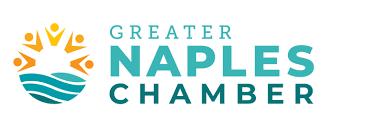






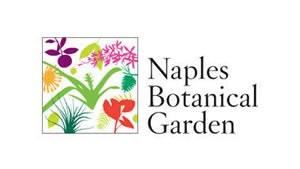
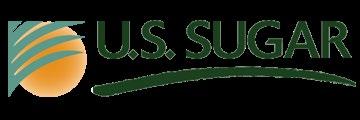
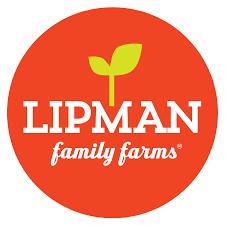


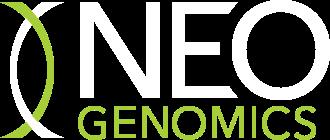


Focus on building partnerships and relationships with our five school districts, area businesses and organizations to optimize opportunities to put FGCU expertise to work to support the region’s economy, model innovative and sustainable practices, and advance the community

All five county district superintendents are part of the College of Education Advisory Board for continuous input and feedback to support the needs of the region.
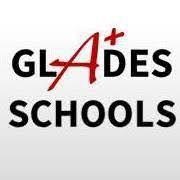
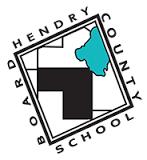

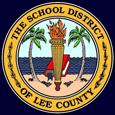
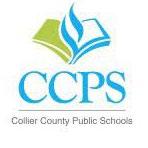
Focus on building partnerships and relationships with our five school districts, area businesses and organizations to optimize opportunities to put FGCU expertise to work to support the region’s economy, model innovative and sustainable practices, and advance the community


Awarded
$455,000


Grant to support workforce and economic development
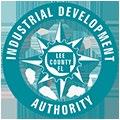
 Elsa and Peter Soderberg Charitable Foundation
Return to the Nest Initiative
Elsa and Peter Soderberg Charitable Foundation
Return to the Nest Initiative
Focus on building partnerships and relationships with our five school districts, area businesses and organizations to optimize opportunities to put FGCU expertise to work to support the region’s economy, model innovative and sustainable practices, and advance the community




Awarded
$1 Million Grant to support workforce and economic development


Focus on building partnerships and relationships with our five school districts, area businesses and organizations to optimize opportunities to put FGCU expertise to work to support the region’s economy, model innovative and sustainable practices, and advance the community

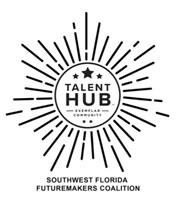
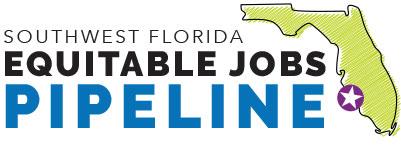
Awarded
$23 Million
Grant to support workforce and economic development


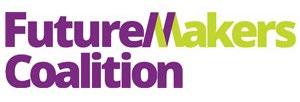



Focus on building partnerships and relationships with our five school districts, area businesses and organizations to optimize opportunities to put FGCU expertise to work to support the region’s economy, model innovative and sustainable practices, and advance the community


 Educational Partner and Convener
Educational Partner and Convener
Focus on building partnerships and relationships with our five school districts, area businesses and organizations to optimize opportunities to put FGCU expertise to work to support the region’s economy, model innovative and sustainable practices, and advance the community

• $450K contract with the Lee Board of County Commissioners to study COVID19 epidemiology
• FGCU is the site for the Thomas Alva Edison Regional Science Fair and supplies many of the judges and the safety oversight
• The Roots of Compassion and Kindness Initiative partners FGCU students with local schoolchildren to promote deeper understanding of compassion and empathy
• More than 200 teachers from the five-county area have attended the Schulze Summer STEM Institute for K-12 teachers since 2013
• Wings of Hope serves over 5,000 fourth- and fifth-grade students annually with environmental education programming
Focus on building partnerships and relationships with our five school districts, area businesses and organizations to optimize opportunities to put FGCU expertise to work to support the region’s economy, model innovative and sustainable practices, and advance the community
• The Watershed Teacher Leadership Academy (WeTLAnd) connects university researchers and Lee County K-12 teachers
• The Noyce Teacher Scholarship program and the Schulze Future Teacher scholarships support the training of STEM majors who will become middle and high school STEM teachers upon graduation
• The Environmental Education Alliance of Southwest Florida – a partnership with the Conservancy of Southwest Florida – hosts an annual conference serving K-12 teachers and paraprofessionals from across the region.
• The FGCU Cancer Research Program has developed an educational program for high schoolers in the five-county area to explain the biology of cancer

Focus on building partnerships and relationships with our five school districts, area businesses and organizations to optimize opportunities to put FGCU expertise to work to support the region’s economy, model innovative and sustainable practices, and advance the community

• Girls in Engineering, Math, and Science (GEMS) works with the Glades Education Foundation; New Horizons of SW Florida; Pace Center for Girls, Collier; and Grace Place to bring girls to FGCU for educational enhancement in STEM areas
• Environmental Education and Outreach partnership with the Conservancy of Southwest Florida expands and enhances environmental-education efforts in a five-county area and includes an FGCU liaison that shares time 50-50 with FGCU and the Conservancy
• Growing Climate Solutions-Path to Positive Southwest Florida, a collaboration among FGCU, the Conservancy, the Community Foundation of Collier County, and the Southwest Florida Community Foundation
• Memorandum of Understanding with Sanibel-Captiva Conservation Foundation to support mutual interests in research and environmental education
Focus on building partnerships and relationships with our five school districts, area businesses and organizations to optimize opportunities to put FGCU expertise to work to support the region’s economy, model innovative and sustainable practices, and advance the community

• Memorandum of Understanding with Estero Bay Aquatic Preserve supports mutual interests in research and conservation.
• Water Steward Partnership with City of Bonita Springs is an FGCU position funded by the city to help monitor water quality in Estero Bay and provide guidance.
• Collier County School District students visit Vester Marine Field Station to collect and analyze samples from Estero Bay.
• RESTART SWFL is a joint initiative of the Lutgert College of Business and the Marieb College of Health & Human Services to help local businesses rebound from the pandemic.
• Seven major publications of the Regional Economic Research Institute help businesses plan for growth and use scarce resources more efficiently and sustainably.
Focus on building partnerships and relationships with our five school districts, area businesses and organizations to optimize opportunities to put FGCU expertise to work to support the region’s economy, model innovative and sustainable practices, and advance the community

• Contract with Collier County to run the Naples Accelerator
• Entrepreneurship partnership with Lee County Horizon Council
• Contract with Veterans Florida to help veterans learn entrepreneurship
• Annual high school entrepreneurship competition with 250 students
• Partnership with Junior Achievement for CEO Academy
• Marieb College provides mental health services to the community through its Community Counseling Center
Focus on building partnerships and relationships with our five school districts, area businesses and organizations to optimize opportunities to put FGCU expertise to work to support the region’s economy, model innovative and sustainable practices, and advance the community
Example: FGCU teams up with The Immokalee Foundation on educating kids about different careers



Focus on building partnerships and relationships with our five school districts, area businesses and organizations to optimize opportunities to put FGCU expertise to work to support the region’s economy, model innovative and sustainable practices, and advance the community

“The hundreds of hours of service learning I’ve earned are not just digits on a screen. They represent hours upon hours of watchdog journalism, tear-jerking interviews, long nights, career growth, self-motivation, mentorship, and a community support. They also represent the hundreds of hours my mentors have contributed, making sure the fine print was perfect, the lead wasn’t buried and the soundbites I chose were powerful. FGCU fostered my potential in journalism, and for that I will be eternally grateful.”
Samantha Romero Journalism Major
Focus on engaging and building loyalty among our alumni and strengthening fundraising efforts
Engagement:
• Expanded Alumni Chapters to 21 cities across the country. These chapters are volunteer-led.
• The relaunch of the Future Eagles Club resulted in over 135 children joining the program. This program builds loyalty to the university.

• The Alumni Awards ceremony was transitioned to a hybrid model which included a virtual awards presentation to announce the recipients and hosted the largest Homecoming tailgate to date with over 600 attendees, including alumni, students, faculty/staff and community members.
• The annual Alumni Association Scholarship Fundraiser raised $30,000, and students were awarded $7,800 in FY22, the highest amount yet.
• The Eagle Mentor Program links alumni volunteers with students to provide career advice. A new online platform allows students to find alumni based on their career aspirations and has approximately 300 users.

• Alumni Relations provides career resources through professional development webinars and partnership with Career Development Services. Alumni have access to exclusive online webinars featuring best-selling authors and career coaches. Our graduates also had access to short courses aimed at providing a unique opportunity to grow their skillsets.
• Host a wide variety of signature events, including fundraisers (Strikes for Scholarships, the FGCU Fishing Invitational) and socials such as Homecoming and Summer Brunch.
• It will take time to develop significant giving capacity from Alumni. In FY22, 784 Alumni donors contributed just over $200,000.
• Efforts focus on participation rather than dollars, establishing the habit of giving.
• Primary alumni fundraisers include Strikes/Strides for Scholarships, Fishing Tournament, Forever an Eagle memberships, and brick paver purchases.
• We intentionally ask alumni to support FGCU only once a year during the alumni campaign. At this stage of the university’s life, we need to show that we are consistently supporting them before we ask them to significantly support us.

In 25 years, FGCU has made a cultural, intellectual, and economic impact on southwest Florida.

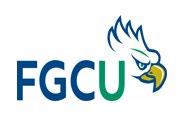
That’s the FGCU Effect.




